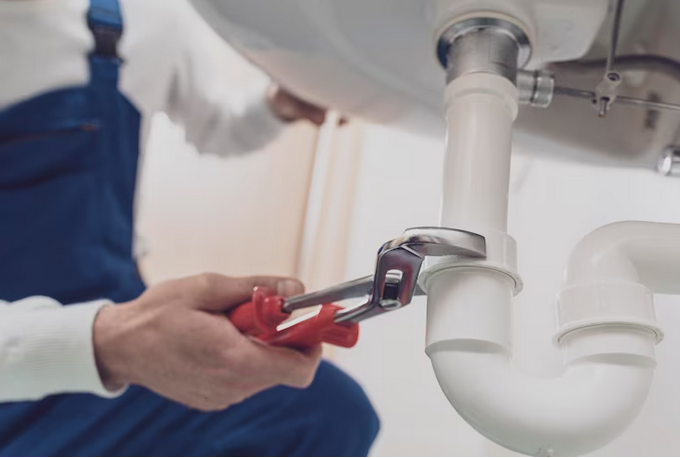Regular Plumbing Maintenance: A Stitch in Time Saves Nine
Just like a regular health check-up keeps you in good shape, your plumbing system deserves the same attention. Schedule routine maintenance checks to identify and fix minor issues before they snowball into major problems. A professional plumber can inspect your pipes, drains, faucets, and water heater, ensuring everything functions smoothly.
Easy Does It: Preventive Plumbing Tips
Remember, prevention is always better than cure. Implement these preventive plumbing tips to keep your system trouble-free:
Watch What You Flush
Only toilet paper should be flushed down the toilet. Items like wipes, feminine hygiene products, and paper towels can clog pipes.
Grease Isn’t the Word
Avoid pouring grease down the kitchen sink. It can congeal in the pipes, causing blockages.
Hair Catchers Matter
Invest in hair catchers for your shower and bathroom sink drains. Hair is a common culprit for clogs.
Your plumbing system requires a little TLC to keep working efficiently:
Temperature Matters
Insulate exposed pipes during colder months to prevent freezing and bursting.
Soft on Faucets
Turn faucets on and off gently. Exerting excessive force can wear out washers and seals.
Mind Your Water Pressure
High water pressure can strain pipes and joints. Consider installing a pressure regulator to keep it in check.
Avoiding Plumbing Emergencies: Think Ahead
The last thing you want is a plumbing emergency catching you off guard. Stay prepared:
Know Your Main Valve
Familiarize yourself with the location of your main water shut-off valve. This can be a lifesaver in case of a sudden leak.
Keep an Eye Out
Regularly inspect your plumbing system for signs of leaks, such as water stains, mold, or musty odors.
Embracing Cost-Effective Plumbing Solutions
Plumbing maintenance doesn’t have to break the bank. Consider these cost-effective solutions:
Fix Leaks Promptly
A dripping faucet might seem insignificant, but it wastes water and can escalate into a bigger issue.
DIY Basics
Learn a few basic plumbing skills. You can fix minor leaks, replace washers, and unclog drains without calling a professional.
The DIY Approach to Plumbing Maintenance
While some tasks are best left to professionals, there are DIY plumbing maintenance tasks you can tackle:
Flushing Your Water Heater
Over time, sediment can accumulate in your water heater, affecting its efficiency. Regularly washing it can extend its lifespan.
Unclogging Drains
Mixing hot water, baking soda, and vinegar can unclog minor drain blockages.
Professional Plumber Advice: When in Doubt, Call a Pro
As confident as you might feel, some plumbing tasks require professional expertise:
Complex Repairs
If a plumbing issue seems beyond your skill level, it’s wise to call a professional plumber.
Plumbing Upgrades
Whether installing a new fixture or upgrading your piping, a plumber can ensure the job is done right.
Conclusion: A Well-Maintained Plumbing System, A Happy Home
Caring for your plumbing system might seem daunting, but the effort is worth it. By following these preventive plumbing tips, performing regular maintenance, and knowing when to call in a professional, you’ll be able to prevent costly emergencies and maintain a healthy, comfortable home. Remember, a little care today can save you from a plumbing nightmare tomorrow.

